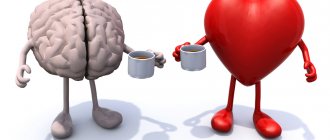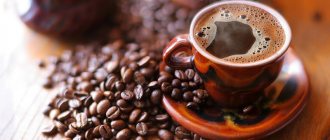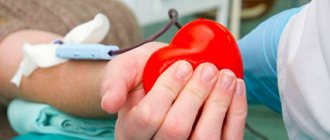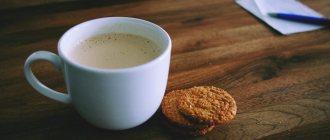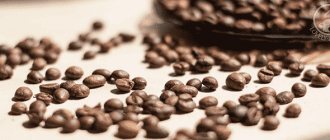Article on the topic
Before or after food? How and when to take the pills
Our expert is a general practitioner, candidate of medical sciences Alexandra Shnurova.
Often, in order to take a pill, we take the liquid that is currently at hand. But in vain. After all, the chemicals contained in various drinks can react with drug components. As a result, the drug may not only lose its effectiveness, but also turn out to be toxic to the body.
Water, but not the same
The general rule is to take medications with boiled water at room temperature. And although there are exceptions to any rule, nevertheless, other drinks should be used only if this method of consumption has been recommended by the attending physician. Therefore, unless your doctor specifically states this point, use medications only with plain, filtered and boiled water.
Even mineral water is not always suitable for this purpose - it can interfere with the absorption of certain medications. However, non-steroidal anti-inflammatory drugs, aspirin, analgin, many sedatives, iodine preparations and other drugs that irritate the gastric mucosa are even useful to drink with mineral water with a high alkaline content. But under no circumstances should you use sweet soda for this. No matter how great the desire to sweeten the bitter pill, it is better to refrain from this method - since such a combination creates insoluble compounds in the body.
Coffee and drugs affecting the nervous system
Nowadays, a variety of sedatives, as well as drugs that sharpen thinking abilities, are very popular. One of these medications is Phenibut. The drug has a mild sedative effect, which is why it is considered relatively harmless. It is often prescribed for neuroses and chronic fatigue syndrome.
Sometimes patients wash down Phenibut with coffee according to the principle “you can’t spoil porridge with butter”: caffeine also promotes clarity of thinking. But if Phenibut calms and treats insomnia, caffeine, on the contrary, invigorates. As a result, the two substances block each other’s actions, and which one will win depends on the individual characteristics of the organism.
Not only are Phenibut and coffee incompatible - any drug that affects the nervous system should not be taken with a caffeinated drink. If the medicine is calming, caffeine reduces the therapeutic effect. If the drug invigorates, then the nervous system receives something like a “whiplash”, and from here it’s not far to neurosis.
Dangerous acid
There are drugs that work most effectively together with sour juice (for example, aspirin, paracetamol, anti-tuberculosis drugs), but for most drugs this proximity is detrimental. For example, it is known that acid destroys calcium preparations and neutralizes the effect of antibiotics and many other drugs.
Fruit juices, especially sour ones, negate the effect of taking antacid medications that reduce the acidity of gastric juice. You should not drink cardiac glycosides and sulfonamides with sour juice or compote - drugs that are also alkalis. It is especially dangerous to combine tablets with grapefruit juice, since this “hellish mixture” causes many adverse reactions. This tasty and healthy drink, when consumed together with medications, can double their effect. This is how overdoses of drugs used to treat heart disease often occur, as well as antidepressants and antibiotics, medications designed to lower blood pressure and regulate cholesterol levels and heart rate. Therefore, for people, especially the elderly and not very healthy, who are forced to regularly take strong medications (for example, heart medications), it is better to forget about grapefruit juice forever.
Should I take the tablets with coffee or not?
Doctors do not recommend resorting to such actions. It is best to take medications with still, clean water.
Scientists have not yet fully studied the mechanism of interaction between drinks containing caffeine and medications. There have been no serious studies on this topic. To avoid negative consequences, the medicine should be taken with water, and coffee should be drunk some time after this.
Some drugs are recommended to be combined with milk. Due to this, the effect of taking them is enhanced.
Before starting therapy, you should read the instructions for each medication.
Maybe some seagull?
Using coffee and tea to quickly swallow medications is also not beneficial. Firstly, the tannins found in these drinks, when interacting with the components of many drugs, form a sediment. Secondly, this combination can have a bad effect on the heart. In particular, this applies to nitrogen-containing drugs: papaverine, codeine, caffeine, aminophylline, cardiac glycosides.
The effect of coffee on medications is even more unpredictable than the effect of tea. In some cases, it inhibits the effect of drugs, and in others, on the contrary, it enhances the effect. Thus, while taking painkillers such as citramon and aspirin and large portions of coffee, the condition of the liver and other organs may worsen.
However, the wrong combination of medicine and drink will not necessarily lead to poisoning, but may simply reduce the expected effect of the drug. Which in the case, for example, with oral contraceptives is not so harmless. It is known that by drinking contraceptive medications with tea or even a decoction of medicinal herbs (for example, St. John's wort), you can achieve not quite the effect that you expected.
Antiulcer drugs (cimetidine, ranitidine), heart medications, iron supplements, enzymes and some antibiotics should not be taken with milk. At the same time, the fat contained in this wonderful product promotes better absorption of fat-soluble vitamins (D, E, K, A), iodine preparations, as well as indomethacin or reserpine.
Antibiotics, caffeinated foods and drinks
When taking antibiotics, it is advisable to follow a diet, since many foods are poorly digested in the presence of antimicrobial drugs. It is better to avoid some additives in coffee until your intestinal flora returns to normal. These are milk and cream, as well as additives based on them.
Protein is a controversial food when linked to disease and antibiotics. It is found in coffee, meat, and plant foods. The cells of the body are built from protein. During illness, it is important to maintain immunity, but immune cells also consist of protein. Therefore, it is necessary to observe the measure - not to give up completely, but also not to eat only meat, otherwise the antibiotics will stop working.
Fat is a double blow to the gastrointestinal tract. During illness, the liver is busy neutralizing drugs and bacterial toxins. If you add fatty foods, you can damage your entire digestive system. The result will be diarrhea, stomach pain, vomiting, and lack of appetite.
Long-term carbohydrates and antibiotics are a good combination. These are cereals, breads and pasta made from whole flour.
When all the beneficial microflora in the intestines has been destroyed, you cannot eat sweets (these are also carbohydrates), as this creates a suitable environment for bacteria to multiply. This can also cause diarrhea and dehydration.
Kefir, homemade yoghurts that contain live cultures of lactic acid bacteria, have a positive effect on the intestines while taking antibiotics.
Just take medications and fermented milk drinks at different times. There are two reasons for this:
- After taking medications, they must be absorbed and pass into the blood.
- The effect of the drug should not be spent on beneficial bacteria that are found in fermented milk products.
Weakened people with long-term treatment with antibacterial drugs are prescribed nystatin to curb the growth of the fungus. In women, this prevents candidiasis (thrush).
How not to drink to your health?
Of course, it is hardly necessary to dwell in detail on the fact that taking medications with alcohol is very harmful. This is already obvious, because ethyl alcohol, which is part of the alcohol, is itself a fairly aggressive active ingredient. Therefore, it either conflicts with equally active ingredients of the drugs, or enhances their effects. Therefore, in combination with alcohol, drugs (especially antibiotics) usually turn toxic.
Taking alcohol along with anticoagulants prescribed when there is a risk of blood clots can even lead to a stroke. However, few sane people would even think of drinking pills with vodka. But it turns out that in order to get drug poisoning, this is not necessary. All you have to do is put vasoconstrictor drops into your nose and then go to the party. And even if in a warm company you drink only one glass of beer or a small cocktail, then all the symptoms of a severe hangover the next morning, and maybe even earlier, will be guaranteed to you. The thing is that alcohol in combination with such drugs sharply increases blood pressure. Up to hypertensive crisis.
Research by scientists
Iranian scientists from Mashhad University conducted tests and found that caffeine increases the effectiveness of some antibiotics. In particular, the effect of carbenicillin on staphylococcus and Pseudomonas aeruginosa was studied.
When caffeine was added to the drug, its effect doubled for Pseudomonas aeruginosa, and quadrupled for staphylococcus. It is worth keeping this in mind if you are a coffee addict and take carbenicillin-based antibiotics.
In most cases, caffeine has some kind of diuretic effect, and therefore antibiotics are broken down, absorbed and eliminated faster than without caffeine.
Admission rules
Many people remember how in childhood, mothers and grandmothers crushed tablets into powder between two tablespoons. It turns out that this should be done not only to make it easier to swallow a large pill. By crushing the tablet, you can reduce its irritating effect and speed up the absorption of the active substances by the body. You just can’t do this trick with capsules and tablets coated with a protective coating. After all, the top layer of such drugs specifically serves to ensure that they reach the stomach unharmed. “Effervescent” tablets, before drinking them, must be dissolved in the amount of water specified in the instructions.
Most medications are taken on an empty stomach, since the gastric juice released during eating has a destructive effect on a number of drugs. But many medications are indicated to be taken strictly before or after meals. For example, enveloping and choleretic agents that help with ailments of the gastrointestinal tract are taken before the start of a meal.
During meals, they drink enzyme preparations that help digest food properly, as well as some diuretics and fat-soluble vitamins A, D, E. Antiacid medications are recommended to be taken after meals. However, remembering all these complex rules for taking medications is, by and large, not necessary, since specific medications must be taken strictly according to the instructions indicated on the drug insert and in accordance with the doctor’s recommendations.
Groups of antibiotics according to the method of action on microbes
Why do doctors recommend doing test samples before prescribing antibacterial drugs? Because this is the only way to find out which microbe entered the body and began to produce its own kind.
Depending on this, a drug must be prescribed so that it kills or at least blocks the reproductive system of the pathogenic organism, otherwise the colony of bacteria will gain immunity, and the person will develop a chronic disease.
Interesting fact! According to the survey, almost half of the adult population believes that antibacterial drugs kill viruses, although the name directly states: antibacterial, that is, against bacteria
For example, it is difficult to distinguish a viral disease from a bacterial one. Antibiotics have no effect on the virus, it is useless to take it. An extra dose of medicine can disrupt the immunity in a person’s intestines (most immune cells live there) and he will not be able to resist a viral infection.
Should you mindlessly take medications, especially against a virus? It’s not worth it, because the body itself must pick up protection and strengthen it, only then the disease will subside.
Some drugs are prescribed specifically because a type of bacteria has entered the body against which other antibiotics are powerless. Others do not kill bacteria, but only prevent them from multiplying. Still others are intended for the treatment of severe infections, including peritonitis or sepsis, so drinking them during bronchitis is dangerous.
Deception maneuver
Vitamins and antivitamins have similar chemical structures. In the body, vitamins are converted into coenzymes and interact with specific proteins, thus regulating various biochemical processes.
Antivitamins also turn into coenzymes, only false ones. They replace the true coenzymes of vitamins, but cannot play their role. Specific proteins do not notice the substitution and try to carry out their usual functions. But this is no longer possible, metabolic processes are disrupted, since they cannot occur without their catalyst - vitamins. Moreover, the false coenzyme begins to participate in the processes itself, playing its own biochemical role.
Thus, the effect of vitamins can be completely or partially blocked, their biological activity is reduced or completely eliminated.
Eliminating competition
Thus, any food product contains both vitamins and their antagonists. There are usually more of the former than the latter, and this ratio is optimal; you should not change it in one direction or another on your own. But it doesn’t hurt to know which substances conflict with each other.
For what? To adjust your eating habits. Coffee lovers should indulge in cottage cheese to replenish calcium loss. And for fans of a raw food diet - wholemeal bread and fatty butter, which are rich in vitamin B.
